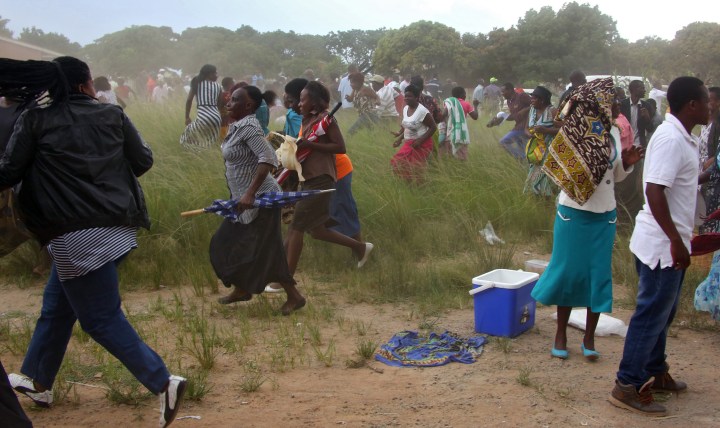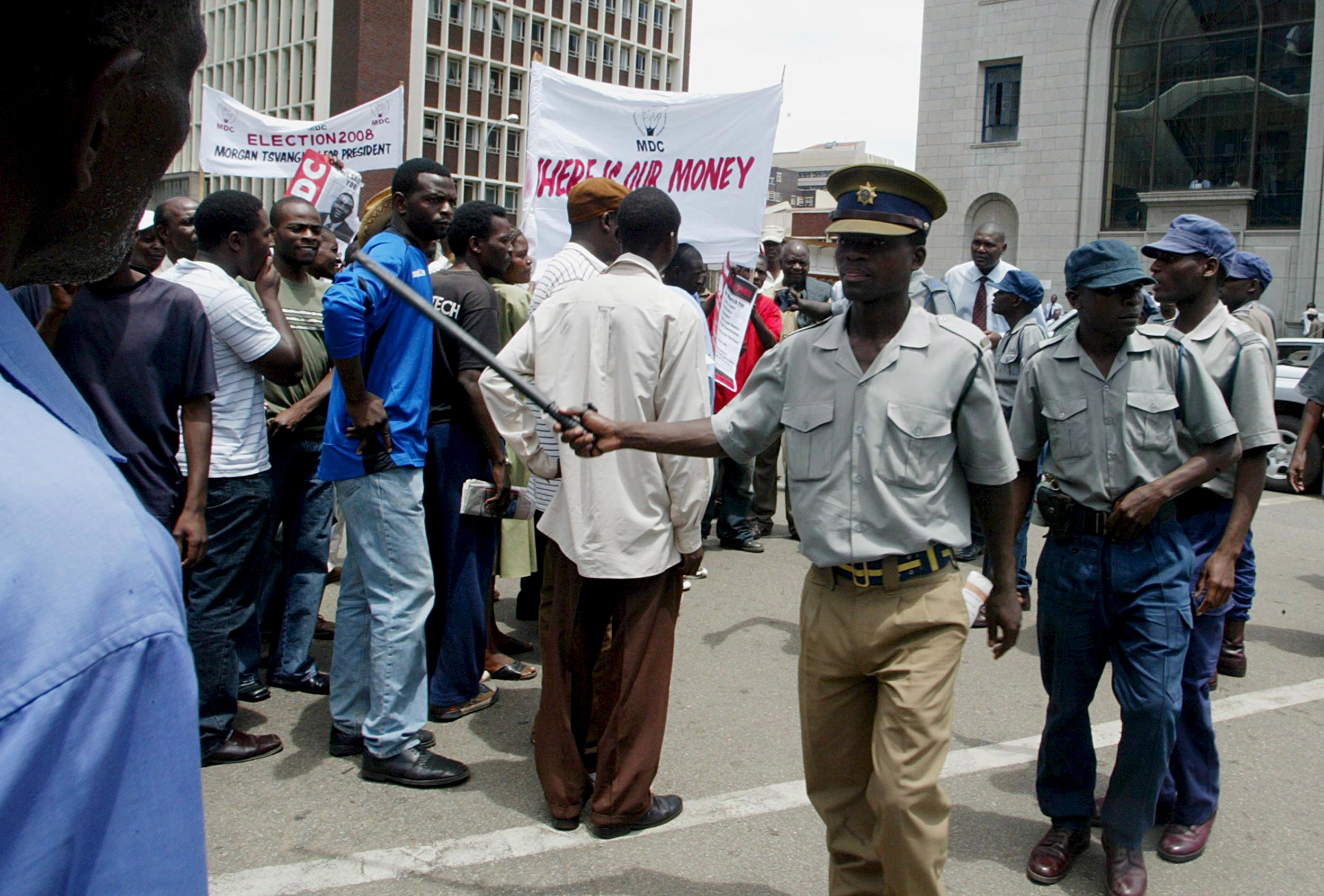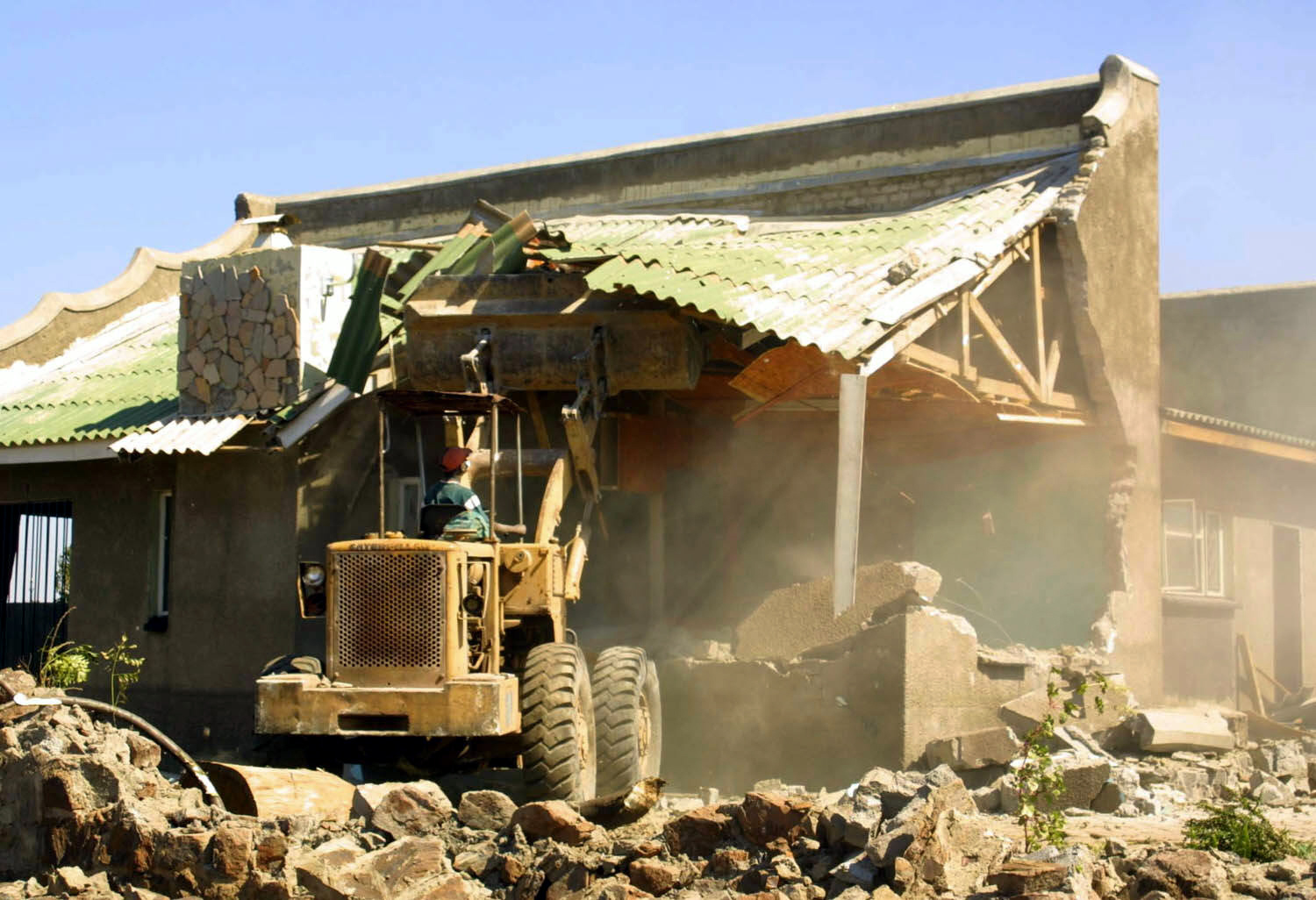VOICES FROM WITHIN OP-ED
Once we were liberators, now we are subjugators – Zanu-PF and its history of violence

Zimbabwe’s ruling party subjugates the country’s people so as to rule illegitimately and loot resources with impunity. This looting by individuals in Zanu-PF results in ‘unequal power and unequal life chances’ between the beneficiaries and the victims of corruption. This is structural violence. It may not always be seen, but it is ever present.
The three major types of violence, according to Johan Galtung, the founder of the discipline of peace and conflict studies and of the Peace Research Institute Oslo, are direct/personal, indirect/structural and cultural. They are usually interconnected and often manifest as the cause and effect of each other.
Zanu-PF has become an exponent of all of them.
Direct violence is also known as physical and/or psychological violence. It is visible and intended. Examples include murder, torture and domestic violence. The perpetrators and victims are identifiable.
Zanu-PF, the party that has ruled Zimbabwe since independence in 1980, has been notorious for personal violence since its creation in 1963. During the war of liberation, several incidents were recorded of the Zanu military wing (Zanla) massacring Zipra soldiers (Zapu). Zipra forces were also accused of violently recruiting people into the guerrilla movement.

Movement for Democratic Change members are threatened by the police during their attempt to march in Harare, Zimbabwe, on 23 January 2008. (Photo: EPA / Bishop Asare)
In the first post-independence elections (1980), Zanu militia were accused of running a terror campaign in Northern Zimbabwe to intimidate people into voting for Zanu.
Victims of the Gukurahundi genocide… have been incapacitated as they live with the threat of the return of physical violence.
After independence, Zanu perpetrated the worst crime known to man, genocide, against the people of Matabeleland. The opposition party, Zapu, had won all but one seat in Southern Zimbabwe and this threatened Zanu’s one-party state ideology. As punishment for voting for Zapu, Zanu unleashed mass personal/physical violence on civilians in Matabeleland and parts of the Midlands.
This we call Gukurahundi.
To end the genocide, Zapu capitulated and agreed to merge with Zanu to form a one-party state.
Since then Zanu has continued to use physical violence and threats of physical violence to subdue the population. Victims of the Gukurahundi genocide, and of other atrocities committed by the government of Zimbabwe against dissenters and opposition, have been incapacitated as they live with the threat of the return of physical violence.
This means that, while the genocide and other cycles of violence ended, the insecurity continues.
The violence continues in a different form.
Structural violence
Is there anything more violent than waking up to the news that billions of US dollars have disappeared from circulation, only for citizens to be told their hard-earned money, in the banks and in various investments, has been replaced with worthless bond notes?
This erosion of savings, investments and insurance has happened to Zimbabweans over and over again, caused by corruption and mass looting of resources.
Read more in Daily Maverick: Zimbabwe at 43: Portents of a deepening authoritarian rule by Zanu-PF
The inflation and poverty we are experiencing were avoidable; they are man-made and thus, violence is being committed.
Zimbabwe’s ruling party subjugates the people of Zimbabwe so as to rule illegitimately and loot resources with impunity. This looting by individuals in Zanu results in “unequal power and unequal life chances” between beneficiaries of corruption and victims of corruption.
This inequality and social injustice is called structural violence. It is the type of violence that cannot be seen and its perpetrators and victims cannot be easily identified. It is embedded in the country’s institutions and structures.
Because resources and power are unevenly distributed, basic necessities are available for some but not for others. The disparities in resource allocation and subsequently in income manifest as unequal access to healthcare, education and even power. Those with access to resources can “buy themselves into power”, as seen in Zimbabwe’s elections where vote-buying is rampant.
A child born to a Zanu-PF politician has access to the best healthcare, education, land and other resources, whereas a child born to a regular Zimbabwean has limited access to the most basic things. From birth, children from these two classes have “unequal life chances”.
This inequality is at the core of structural violence. Because the lack of access to basic needs and services is due to corruption and misgovernance and mismanagement of resources, and because it is avoidable, it means violence is being committed.

A house is destroyed in Chitungwiza, about 30km south of Harare, on 17 June 2005 as part of the Mugabe government’s Operation Murambatsvina (Drive Out Filth)/Operation Restore Order. (Photo: AFP /STR)
Such violence, as explained above, is present even though it is almost impossible to trace it to an individual perpetrator, as with direct violence. The violence in such cases is structural, it is built into the structure.
Going back to our definition of violence being the cause of the difference between what is and what could have been, structural violence is therefore just as violent as direct violence. Both result in incapacitation in one form or another, and both have avoidable causes.
What did these children and communities do to the government to ‘deserve’ this violence being perpetrated against them?
The physical violence against the people of Matabeleland ended when Zapu submitted to Zanu, but the marginalisation of those people continues. This manifests mostly as underdevelopment. Some children in Zimbabwe walk more than 20km to school but are subjected to the same exams as children who take a bus or live within a 1km of the school.
In 2020, 88 schools recorded a 0% pass rate in the primary schools final exams. Thirty-one are in Matabeleland – despite the fact that its population is just more than 20% of Zimbabwe’s total population. This means the majority of children in Matabeleland failed the exams.
Read more in Daily Maverick: ‘Pathway to hope’: It’s time to give Zimbabwe back to the people
This was avoidable, and as such, violence was committed against those children and those communities, even though nobody was shot, imprisoned or disappeared, according to our conventional understanding of violence.
Had the government built enough schools, deployed enough teachers and created an environment where parents could access employment and pay school fees, these children’s life chances would have improved dramatically.
We tell each other to not confront the government because if we do they will unleash violence on us. What did these children and communities do to the government to “deserve” this violence being perpetrated against them?

Zimbabwe Republic Police officers outside the Bronte Hotel in Harare during Movement for Democratic Change Alliance leader Nelson Chamisa’s press conference on 3 August 2018. (Photo: EPA-EFE / Aaron Ufumeli)
Because the violence is built into the institutions and structures, we cannot protect ourselves from it. It comes to us even when we are silent and not dissenting.
The government of Zimbabwe uses structural violence as a default and they threaten those who dare to express any dissent over the inequality and social injustice with physical violence. In our fear of being shot, abducted, disappeared, tortured and wrongfully arrested, we choose to suffer in silence.
We call our involuntary silence “peace”.
We are not peaceful, we have been silenced. We are cowards. And as my friend Professor Eussebio Wanyama likes to say, “cowards live longer but they suffer more”. DM
This is the second in a three-part series of articles by Zimbabwean activist Thandekile Moyo looking at the causes, effects and forms of violence that have plagued Zimbabwe in the run-up to the harmonised elections on 23 August. Over the next two months Maverick Citizen will be carrying reports and opinions from Zimbabwe that focus on the importance of ensuring free and fair elections and a democratic outcome in that country. Read part 1 here.




















It’s shocking how the world and especially South Africa has remained silent over the never-ending violence towards Zimbabweans, and the looting of Zim’s resources, by ZanuPF. I was puzzled about why Emirates has a daily flight to Harare until the news broke about where the gold stolen by ZanuPF was going.